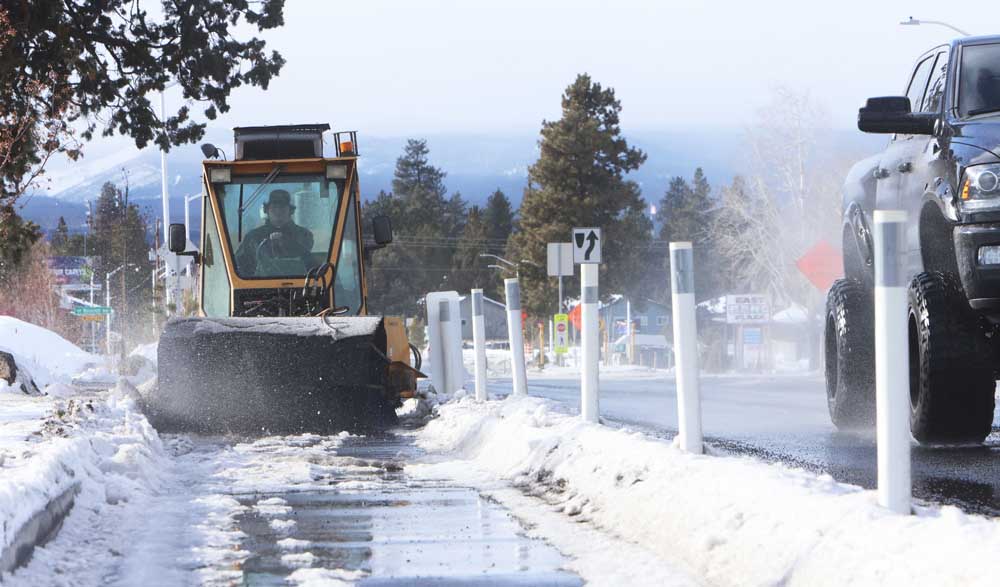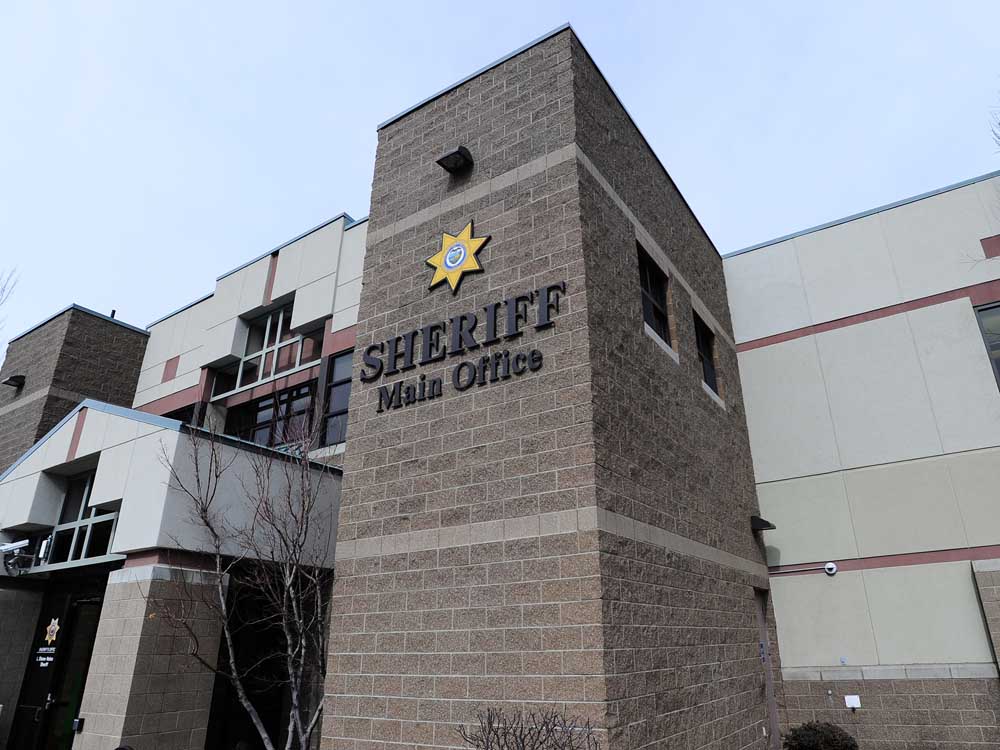Bend’s transportation fee: Everything you need to know about the newest charge on your utility bill
Published 5:45 am Saturday, February 10, 2024

- Snow, ice and slush are cleared from the protected bike lane along SE Wilson Avenue in Bend on Jan. 12. Services like this are expected to benefit from a new city of Bend transportation fee, set to begin July 1.
This summer, the city of Bend is expected to begin charging households between $4.15 and $5.60 and per month to maintain the city’s transportation system. Businesses will be charged more.
The fee, which is expected to increase at least three times in as many years, is based on the premise that everyone relies on the city’s transportation system, whether it be for mail and deliveries, garbage collection or commuting.
Trending
City staff outlined a draft of the fee’s code before the City Council Wednesday, shedding light on what residents, businesses and organizations will actually have to pay come summertime. The fee doesn’t require voter approval like a new tax does, but the city also announced opportunities for the public to weigh in before the fee is up for Council approval in March.
“Unfortunately, the funding we have relied on is no longer keeping up with our transportation needs. And at the same time, costs are increasing,” City Councilor Mike Riley said in a city announcement.
“The state gas tax revenues, used to fund transportation maintenance, are predicted to flatten or drop in coming years.”
The fee will be phased in over the next three years. The first phase is set to begin July 1, but residents, business owners and organizations likely won’t see any new charges until the following month.
In the first year of the fee, single-unit homes can expect to pay around $5.60 per month and multi-unit homes can expect to pay around $4.15 each month per unit, according to the city’s initial estimates.
Non-residential utility accounts, which include businesses, government entities and other organizations, will also have to pay. The larger the property, the higher their monthly fee will be.
Trending
Short-term rentals that use an entire house — of which there are just more than 1,000 in Bend — will have to pay an annual $100 fee in addition to a typical single-unit residential fee in the first year.
Transportation fee will increase
To finance its transportation-related goals, the city is aiming to collect $5 million in revenue in the first year from the fee, $10 million in the second year and $15 million in the third.
That’s why fees won’t stay the same year over year.
“All the fees associated with the transportation fee structure would be raised during the additional phases,” said Russ Grayson, the city’s chief operations officer.
Around the third year of fee collection is when Grayson estimates residents will be able to see the fruits of the fee. Specific projects funded with fee revenue will be determined during the city’s budget season.
The city is offering discounted fee rates for qualifying low-income households, as is customary with other utility charges.
Transportation is one of the largest household expenses in the United States, second only after housing costs. The average U.S. household spends roughly $12,300 on transportation-related costs each year, according to the U.S. Department of Transportation. Rural households spend about $1,000 more annually. The City Council weighed a 50% fee reduction Wednesday for the Bend-La Pine School District, which under initial estimates would’ve had to pay $200,000 in the first year.
“As a governmental agency using public funds to serve youth in our district, our trips are mostly limited to our school buses providing students access to and from school each day,” said Scott Maben, spokesperson for the district.
Now, the district will likely only pay $100,000 in the first year of the fee.
Public school-related traffic makes up around 4% of average daily trips on the city’s entire transportation system.
Creating the new transportation fee doesn’t preclude the city from considering a seasonal fuel tax in the future, which has been favored as an additional revenue stream to mitigate funding woes.
Transportation fee: Public input opportunities
Members of the public can learn more about the transportation fee at two listening sessions and at bendoregon.gov/transportation-fee.
Listening sessions
Both meetings will be hybrid and will be held in Council Chambers at City Hall, 710 NW Wall St. in Bend.
Session one: 4:30 to 6:30 p.m. on Feb. 26
Session two: 9:30 to 11:30 a.m. on Feb. 29.
City Council
The City Council is expected to discuss feedback gleaned during the listening sessions on March 6, and a public hearing on the transportation fee is scheduled to take place March 20.








